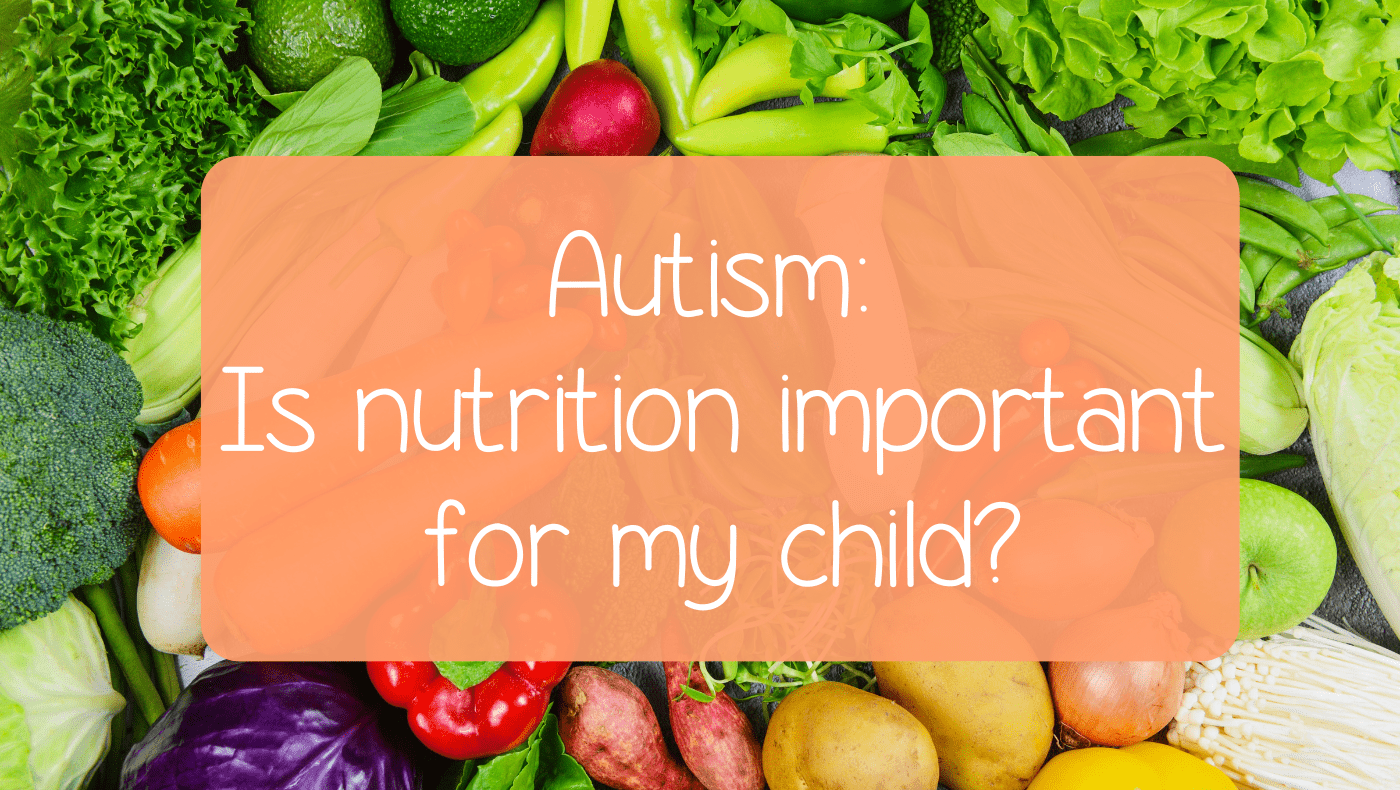Last updated on March 21st, 2025 at 08:40 am
As a parent of a child on the spectrum, you may have heard that nutrition plays an important role in your autistic child’s health. While it is true that providing proper nutrition for your child can be challenging, the benefits are worth the effort.
In this blog post, we will explore why nutrition is so important for children with autism, as well as how to ensure you don’t fall into the trap of believing nutrition is not important. We’ll also look at some of the reasons why nutrition is important for your child.
I would like to first start by defining the word nutrition. Nutrition is defined as the process of providing or obtaining the food necessary for proper growth and health. When our kids are young they should be getting proper nutrients.
There are several reasons why you should consider nutrition as the foundation for helping your child gain a better quality of life and I would like to dive into a few of them.
#1 Nutrition is important because it plays a major role in your child’s behavior.
I am sure you’re aware that many children on the autism spectrum have tantrums. They sometimes have behavior issues, anger issues, and the list goes on.
Nutrition is an extremely important factor for children on the autism spectrum, as it plays a major role in their behavior. Research has shown that the right diet can have a significant impact on a child’s social, emotional, and academic performance.
In fact, certain dietary interventions have been found to reduce behavioral symptoms associated with autism, including tantrums.
Improving your child’s nutrition or focusing on nutrition will help alleviate some of those symptoms that you’re seeing with your child.
#2 Nutrition is important because it can have a major effect on your child’s sleep.
Nutrition is important for children on the autism spectrum because it plays a major role in their sleep. Poor nutrition can lead to difficulty falling asleep, restlessness at night, and more frequent awakenings. It can also have an effect on your child’s quality of sleep, leaving them feeling unrested and fatigued during the day.
By ensuring that your child gets adequate nutrition, you can help ensure that they get the proper amount of high-quality sleep each night. Eating a balanced diet of fresh fruits and vegetables, proteins, healthy fats, and complex carbohydrates will provide your child’s body with the fuel it needs to rest properly.
Additionally, avoiding processed foods with additives like high-fructose corn syrup or artificial coloring can help reduce any disruptive behavior related to food sensitivity or allergies. Taking these steps ensures that your child gets the necessary nutrients to support their physical and mental health while preparing their body for optimal rest at night.
#3 Nutrition is important because it plays a major role in gut health.
Nutrition is important for children on the autism spectrum because it plays an essential role in gut health. Poor nutrition can lead to a decrease in the populations of good bacteria and other microorganisms that populate the digestive system, leading to altered gut microbiota and increased inflammation.
Research has also demonstrated that individuals with autism often have higher levels of inflammation in their bodies compared to neurotypical individuals, which can contribute to a wide range of issues including gastrointestinal problems, sleep difficulties, fatigue, and reduced cognitive functioning.
Furthermore, some studies have revealed significant correlations between an imbalanced gut microbiome and a number of symptoms associated with ASD such as anxiety, depression, and social difficulty.
Feeding your child foods that are not out of the box and foods that are nutrient-rich will help their gut bacteria grow and develop.
This leads to a lot of positive outcomes such as improved sleep, improved mood, and improved behavior.
Your child will start to feel better once they are receiving proper nutrients and food that will help to address the nutritional deficiencies that they may be encountering.
#4 Nutrition is important because it plays a major role in cognition.
Nutrition is also important for children on the autism spectrum because it can have a major effect on their cognitive development. Research has shown that a balanced diet rich in essential vitamins, minerals, Omega-3 fatty acids, and other micronutrients can lead to improved cognitive functioning in autistic individuals.
Studies suggest that dietary interventions with specialized interventions may be able to reduce symptoms associated with ASD such as anxiety and depression, improve communication skills, and enhance executive functions. This can be attributed to the positive impact of nutrition on neuronal development and synaptic plasticity in the brain which is responsible for many aspects of cognition.
Additionally, poor nutrition can lead to deficiencies in B vitamins, iron, magnesium, zinc, and other micronutrients which are required for healthy brain development. Inadequate levels of these nutrients are associated with deficits in attention span, memory problems, and behavioral issues commonly seen among people on the autism spectrum.
Therefore, providing your child with a balanced diet can help support your child’s cognitive growth while improving overall health.
In conclusion, nutrition is essential for children on the autism spectrum as it plays an important role in gut health and can help to reduce inflammation.
By providing your child with a balanced diet rich in fresh fruits and vegetables, probiotics, avoiding processed foods, and excess use of antibiotics you will be able to support their immune system while creating an environment where good bacteria can thrive.
If you would like further guidance on how to provide optimal nutrition for your child then I invite you to check out my storefront for more reliable resources.





0 Comments